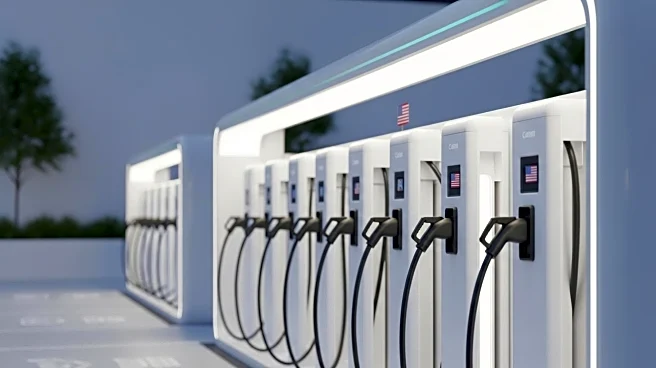What's Happening?
The United States is set to end its $7,500 tax credit for new electric vehicle (EV) purchases and the $4,000 credit for used EVs. This policy change is anticipated to cause a surge in EV purchases before the credits expire on September 30, 2025. The tax credits have been a significant incentive for consumers considering the switch from traditional gasoline vehicles to electric ones. As the deadline approaches, many potential buyers are rushing to take advantage of the financial benefits. The expectation is that EV sales will initially drop after the credits end, but the influx of new EV owners could lead to increased awareness and interest in electric vehicles. These new owners are likely to share their positive experiences with friends and family, potentially influencing others to consider EVs.
Why It's Important?
The expiration of the EV tax credits could have a substantial impact on the U.S. automotive market and the broader push towards sustainable transportation. While the immediate effect may be a temporary decline in sales, the long-term impact could be an accelerated adoption of EVs as more people become aware of their benefits. This shift is crucial for reducing carbon emissions and combating climate change. The transition to electric vehicles is also significant for the automotive industry, which is increasingly investing in EV technology and infrastructure. The end of the tax credits may prompt manufacturers to explore other incentives or innovations to maintain sales momentum.
What's Next?
Following the expiration of the tax credits, the automotive industry and policymakers may need to consider alternative strategies to encourage EV adoption. This could include new incentives, infrastructure investments, or regulatory changes. The response from consumers and the market will be closely watched to assess the impact of the policy change. Additionally, there may be discussions about reintroducing or modifying the tax credits in the future, depending on the political climate and environmental goals.










